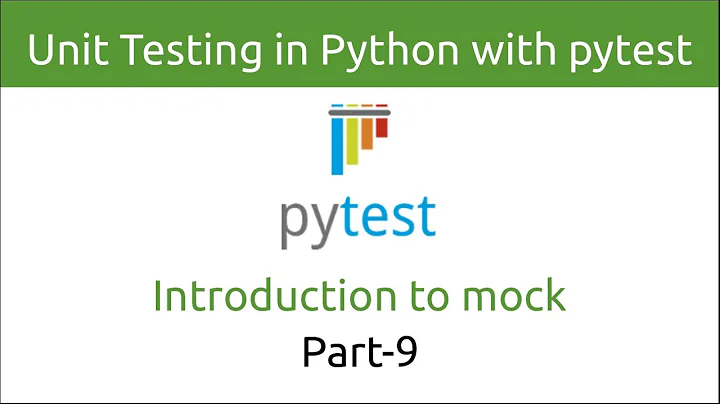How to (should I) mock DocumentClient for DocumentDb unit testing?
Solution 1
The key to this is that the CreateDocumentQuery you are calling, though shown as returning IOrderedQueryable, the encapsulated result will also be derived from IDocumentQuery which is what would allow .AsDocumentQuery() to work.
Now normally you should not be mocking what you do not own. However in this case if you want to exercise ExecuteQueryAsync to completion you can create a fake abstraction that will allow the test to be exercised to completion.
The following Example shows how it can be done.
[TestClass]
public class DocumentDBRepositoryShould {
/// <summary>
/// Fake IOrderedQueryable IDocumentQuery for mocking purposes
/// </summary>
public interface IFakeDocumentQuery<T> : IDocumentQuery<T>, IOrderedQueryable<T> {
}
[TestMethod]
public async Task ExecuteQueryAsync() {
//Arrange
var description = "BBB";
var expected = new List<MyDocumentClass> {
new MyDocumentClass{ Description = description },
new MyDocumentClass{ Description = "ZZZ" },
new MyDocumentClass{ Description = "AAA" },
new MyDocumentClass{ Description = "CCC" },
};
var response = new FeedResponse<MyDocumentClass>(expected);
var mockDocumentQuery = new Mock<IFakeDocumentQuery<MyDocumentClass>>();
mockDocumentQuery
.SetupSequence(_ => _.HasMoreResults)
.Returns(true)
.Returns(false);
mockDocumentQuery
.Setup(_ => _.ExecuteNextAsync<MyDocumentClass>(It.IsAny<CancellationToken>()))
.ReturnsAsync(response);
var client = new Mock<IDocumentClient>();
client
.Setup(_ => _.CreateDocumentQuery<MyDocumentClass>(It.IsAny<Uri>(), It.IsAny<FeedOptions>()))
.Returns(mockDocumentQuery.Object);
var cosmosDatabase = string.Empty;
var documentsRepository = new DocumentDBRepository<MyDocumentClass>(cosmosDatabase, client.Object);
//Act
var query = documentsRepository.GetQueryable(); //Simple query.
var actual = await documentsRepository.ExecuteQueryAsync(query);
//Assert
actual.Should().BeEquivalentTo(expected);
}
}
Solution 2
Here is Nkosi's answer ported to NSubstitute:
[TestClass]
public class DocumentDBRepositoryShould
{
[TestMethod]
public async Task ExecuteQueryAsync()
{
// Arrange
var description = "BBB";
var expected = new List<MyDocumentClass> {
new MyDocumentClass{ Description = description },
new MyDocumentClass{ Description = "ZZZ" },
new MyDocumentClass{ Description = "AAA" },
new MyDocumentClass{ Description = "CCC" },
};
var response = new FeedResponse<MyDocumentClass>(expected);
var mockDocumentQuery = Substitute.For<IFakeDocumentQuery<MyDocumentClass>>();
mockDocumentQuery.HasMoreResults.Returns(true, false);
mockDocumentQuery.ExecuteNextAsync<MyDocumentClass>(Arg.Any<CancellationToken>())
.Returns(Task.FromResult(response));
var client = Substitute.For<IDocumentClient>();
client.CreateDocumentQuery<MyDocumentClass>(Arg.Any<Uri>(), Arg.Any<FeedOptions>())
.ReturnsForAnyArgs(mockDocumentQuery);
var cosmosDatabase = string.Empty;
var documentsRepository = new DocumentDBRepository<MyDocumentClass>(cosmosDatabase, client);
//Act
var actual = await documentsRepository.GetDataAsync(); //Simple query.
//Assert
actual.Should().BeEquivalentTo(expected);
}
public class MyDocumentClass
{
public string Description { get; set; }
}
public interface IFakeDocumentQuery<T> : IDocumentQuery<T>, IOrderedQueryable<T> {
}
public class DocumentDBRepository<T>
{
private readonly string cosmosDatabase;
private readonly IDocumentClient documentClient;
public DocumentDBRepository(string cosmosDatabase, IDocumentClient documentClient)
{
this.cosmosDatabase = cosmosDatabase;
this.documentClient = documentClient;
}
public async Task<IEnumerable<MyDocumentClass>> GetDataAsync()
{
var documentUri = UriFactory.CreateDocumentCollectionUri(cosmosDatabase, "test-collection");
var query = documentClient
.CreateDocumentQuery<MyDocumentClass>(documentUri)
.AsDocumentQuery();
var list = new List<MyDocumentClass>();
while (query.HasMoreResults)
{
var rules = await query.ExecuteNextAsync<MyDocumentClass>();
list.AddRange(rules);
}
return list;
}
}
}
Related videos on Youtube
Ernesto
Im a software engineer, who also enjoys writting poetry, reading and spending time with my family.
Updated on June 22, 2022Comments
-
 Ernesto about 2 years
Ernesto about 2 yearsFrom the new CosmosDb emulator I got sort of a repository to perform basic documentdb operations, this repository gets injected to other classes. I wanted to unit test a basic query.
public class DocumentDBRepository<T> where T : class { //Details ommited... public IQueryable<T> GetQueryable() { return _client.CreateDocumentQuery<T>( UriFactory.CreateDocumentCollectionUri(_databaseId, _collectionId), new FeedOptions { MaxItemCount = -1, EnableCrossPartitionQuery = true }); } public async Task<IEnumerable<T>> ExecuteQueryAsync(IQueryable<T> query) { IDocumentQuery<T> documentQuery = query.AsDocumentQuery(); List<T> results = new List<T>(); while (documentQuery.HasMoreResults) { results.AddRange(await documentQuery.ExecuteNextAsync<T>()); } return results; } }This repository needs a document client to work, which also gets injected on the constructor.
public DocumentDBRepository(string databaseId, IDocumentClient client) { _client = client; _databaseId = databaseId; _collectionId = GetCollectionName(); }My initial approach was to use the CosmosDb emulator, but that required the emulator to run which I don't like and makes the tests slower.
My second approach was to try and use a mock of the document client.
var data = new List<MyDocumentClass> { new MyDocumentClass{ Description= "BBB" }, new MyDocumentClass{ Description= "ZZZ" }, } .AsQueryable() .OrderBy(q => q.Description); var client = new Mock<IDocumentClient>(); client.As<IDocumentClient>() .Setup(foo => foo.CreateDocumentQuery<MyDocumentClass>(It.IsAny<Uri>(), It.IsAny<FeedOptions>())) .Returns(data); DocumentDBRepository<MyDocumentClass> repo= new DocumentDBRepository<MyDocumentClass>(cosmosDatabase, client.Object);The code that uses this repository works like this:
var query = _documentsRepository.GetQueryable() .Where(d => d.Description = description) .OrderByDescending(d => d.description) .Take(100); //Execute query async fails. var result = await _documentsRepository.ExecuteQueryAsync(query);It fails because the repository tries to convert the
IQueryableto aIDocumentQueryobject, which is very specific to DocumentDb api (See methodExecuteQueryAsyncabove). Later on, it executesHasMoreResultsmethod on it. So the problem is, even if I mock.asDocumentQuery()to return my object, I don't know how to provide a result forHasMoreResultsandExecuteNextAsyncso that it makes sense for my unit tests.My third option would be to straight mock my repository instead of the DocumentClient object. Would be, I think, simpler, but I wouldn't be testing much of the DocumentDb api.
-
zaitsman over 6 yearsWhat you need to do is show the body of the
AsDocumentQuerymethod from that Cosmos Db. It may be entirely possible to just mock theIDocumentQuery<T>and for all the standardIQueryablemethods call forward to the underlyingList<T>().AsQuyerable(). If you add theAsDocumentQuerylisting i may be able to have a go at it -
 Ernesto over 6 yearsAsDocumentQuery is an AzureApi method, msdn.microsoft.com/en-us/library/azure/dn850283.aspx and I don't really know how it is implemented. That is the problem.
Ernesto over 6 yearsAsDocumentQuery is an AzureApi method, msdn.microsoft.com/en-us/library/azure/dn850283.aspx and I don't really know how it is implemented. That is the problem. -
zaitsman over 6 yearsyou do know that you can decompile dll to sources? Install resharper and it is as easy as one click
-
 Ernesto over 6 yearsI do know. I appreciate the advice but I just can't see how one should need to de-compile source to write a simple unit test. I would do it if that's the only way, but I guess for now I will stick to just mock the repository unless something better appears.
Ernesto over 6 yearsI do know. I appreciate the advice but I just can't see how one should need to de-compile source to write a simple unit test. I would do it if that's the only way, but I guess for now I will stick to just mock the repository unless something better appears.
-
-
 Ernesto over 6 yearsI think this is it. I am still debating whether I should mock this or not because of the "not mocking what i don't own" but this actually works. I didn't know of SetupSequence which i think was the missing part. Thanks a lot.
Ernesto over 6 yearsI think this is it. I am still debating whether I should mock this or not because of the "not mocking what i don't own" but this actually works. I didn't know of SetupSequence which i think was the missing part. Thanks a lot. -
Rodney S. Foley over 6 yearsThe "not mocking what you don't own" quote has been taken out of context. As part of unit testing, you should MOCK, STUB, FAKE, or DUMMY anything you can that ensures you are properly isolating your "Unit Under Test" or "System Under Test". Which typically means your 3rd party data source library. Which some 3rd parties make easy to do another like Cosmos DB make very difficult. If you didn't you could never properly "Unit Test" your own repository or "unit of work" implementations as they all would be reading and writting to a data source making them an "Integration Test"
-
 Iain over 5 yearsUnfortunately
Iain over 5 yearsUnfortunatelyresponseis not a valid FeedResponse ... though you can iterate it, you can't touch some useful properties likeRequestChargeas they will throw an exception. -
 Emy Blacksmith over 5 yearsDoes not work with
Emy Blacksmith over 5 yearsDoes not work withwhereclause or any Linq clause. -
 Nkosi over 5 years@JeremyF. this particular question was not using filters so the answer addresses the specific issue. Check this one stackoverflow.com/questions/54929728/… if you want to be able to use queries
Nkosi over 5 years@JeremyF. this particular question was not using filters so the answer addresses the specific issue. Check this one stackoverflow.com/questions/54929728/… if you want to be able to use queries -
 Nkosi over 5 years@JeremyF. this one is for moq stackoverflow.com/questions/49906029/…
Nkosi over 5 years@JeremyF. this one is for moq stackoverflow.com/questions/49906029/… -
 Emy Blacksmith over 5 years@Nkosi I actually found this solution by myself, but now I got cast problems with
Emy Blacksmith over 5 years@Nkosi I actually found this solution by myself, but now I got cast problems withAsDocumentQuery(). I'll be using sync methods from now!










